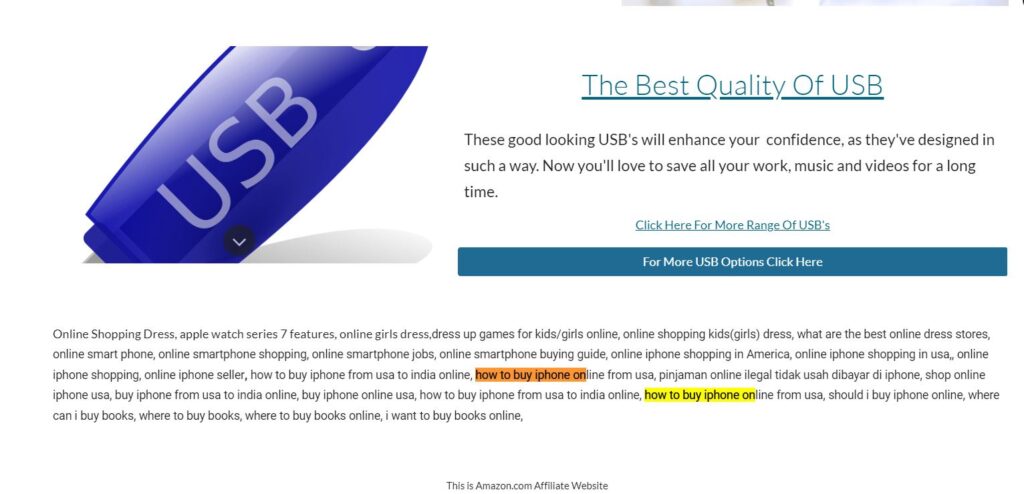
Too many SEOs continue to obsess over keywords and keyword density. Some even doggedly continue the practice of keyword stuffing. But this approach has been rendered obsolete.
By adding more and more Natural Language Processing capabilities Google is moving away from the flat, mechanical world of keywords and is instead developing a search product that’s becoming ever more attuned to the nuances of human speech.
Keywords still matter, as does the frequency of their usage. But not as much as they used to.
What matters right now, and what will matter even more in the future, is how you approach these keyword topics and how fluid and natural your content is.
And that requires a whole rethink of how we look at keywords, keyword usage and keyword density.
What Is Keyword Density?
Keyword density is the measure of how many times you use a specific keyword on a web page, relative to the total word count of that page. That value is generally expressed as a percentage.
The more times you use your keyword within a specific piece of content, the higher the keyword density of that content becomes.

How To Check Keyword Density
There are many tools available online which allow you to check your keyword density. The one I like to use is Word Counter: https://wordcounter.net/
How To Calculate Keyword Density
To calculate the keyword density of text first divide the number of times your keyword appears by the overall number of words in the text. Then multiply that figure by a hundred to get a percentage value.
So let’s say your main keyword is “iPhones online” and it appears twice within a 500 word piece of content.
You divide the keyword frequency by the total word count so:
2 ÷ 500 = 0.004
Then multiple that by 100 to turn it into a percentage:
0.004 x 100 = 0.4%
What Is An Optimal Density?
Generally speaking, you should be aiming for between 1-2%. This is the supposed “sweet spot.”
Anything less and your keyword loses impact. But anything over 2% is pushing it and might be flagged as spam.
In the previous “iPhones online” example we calculated that keyword had a keyword density of 0.4%. Most SEOs would consider that to be a low keyword density, but that may not necessarily be an issue.
Always keep in mind that Google no longer views keywords in isolation and instead groups them together.
And herein lies the problem with keyword density; Google won’t count exact match phrases like “iPhones online” and “iPhone online” separately.
So if the former keyword appears only twice, but the keyword “iPhone online” appears four times, then our previous keyword density calculation is way off.
That’s why, instead of focussing too much on keyword density, you’re better off ensuring that any keywords you want to target are included naturally in the text.
This way you render questions about keyword density moot and provide a better user experience while also ensuring your content doesn’t get flagged for keyword stuffing.
What Is Keyword Stuffing?

Keyword stuffing is a discredited SEO technique whereby instances of a keyword (or set of keywords) appear with unnatural frequency within a piece of web content.
The idea is that, by repeatedly mentioning the target keyword over and over, this will somehow improve rankings.
Except the practice doesn’t work.
Keyword stuffing was a common practice back in the early days of the internet when search engines were still relatively new, yet some dogged SEO veterans still stick to the practice.
Which explains why we still encounter content that feels like you’re constantly being over the head with the keyword hammer.
Keyword Stuffing Example
Here is an example of keyword stuffing taken from a review article for a now-defunct online casino brand.
Stuffer’s Online Casino is a popular Online Casino featuring all the best Online Casino games. If you are looking for all the best Online Casino games then check out Stuffer’s Online Casino today. At Stuffer’s Online Casino we have a huge variety of Online Casino games including the best Slots, Roulette and Poker. But that’s just for starters. Our Online Casino games also include Blackjack, Baccarat and other Online Casino favourites like Video Poker…
– name changed to protect the “innocent”

Ok, that’s enough of that…
How’s your brain holding up? Yeah, same here.
I should mention that I changed the brand name to “Stuffer’s Casino” but this was a real piece of content.
I decided to save it for posterity because I knew I was going to write about it some day.
The content was published in 2014 which, admittedly, is quite a few years ago now, but it’s also three years after Google first targeted spammy practices like keyword stuffing with its Panda update.
The most outrageous part of it all, the SEO manager responsible didn’t think the keyword had been used enough times.
And yet if you were to pick a group of people who know absolutely nothing about SEO and asked for their opinion on that text, the verdict would be unanimous.
Keyword Stuffing Looks Ridiculous

Nobody is going to take the time to sit down and read content like that.
And we’ve all encountered websites like it, with keywords that were crammed inside the text in a haphazard manner with no thought given to readability, credibility or even basic grammar.
At best the writing seems off, at worst the offending content is so bad it scares off potential customers the instant they arrive.
Google generally frowns on any attempts to artificially manipulate the search results. But it comes down particularly hard on sites that provide a “negative user experience.”
Its webmaster guidelines state so clearly:
“…filling pages with keywords or numbers results in a negative user experience, and can harm your site’s ranking.”
– Google Webmaster Guidelines.
A considerable amount of Google’s algorithm is devoted to detecting these behaviours.
In other words…
Google Will See It Coming A Mile Away

Actually, it won’t need to. It’ll smell it.
I dare you to re-read the Stuffer’s Casino example again out loud and imagine it’s a conversation.
No? Ok, don’t blame you. Once is enough.
And Google only needs to read it once to see it for what it is too.
It’s bad user experience.
Nobody wants to read content that repeats the same phrase over and over.
So if your keyword doesn’t fit, it doesn’t fit. Don’t force it.
Never feel like you have to crowbar your keywords into every sentence or paragraph. And you certainly shouldn’t be twisting or bending grammar rules to do so.
Google Is Not The Grammar Police, But…
Ok, so here’s a common scenario.
A company hires an SEO agency to help improve its search engine performance. First thing the agency does is perform some keyword research. They then compile a list of search terms with a high search volume and ask their writers to create pieces of content on those phrases.
But those phrases are often shorthand. Because who types complete, grammatically-correct sentences into Google?
For example, let’s take the keyword, “buy iPhone online”, which has a high monthly search volume.
The agency decides this is a nice fat juicy keyword to target so they send a brief to one of their writers:
Create a 1,000 word article on the keyword, “Buy iPhone Online”.
Make sure to use this keyword in the title tag, meta description all the main headings and in paragraphs throughout the piece.
In addition to having a high word count, the agency’s brief also insists on a specific keyword density.
The writer follows the brief as instructed, adding in subheadings like “How To Buy iPhone Online” and “Where To Buy iPhone Online.”

When the client points out the grammar errors they’re told by the agency, “oh it doesn’t matter, it’s just for SEO.”
Hear that?
Those are alarm bells ringing.
Sacrificing grammar for keywords costs you credibility, which in turn can cost you conversions.
After all, would you feel comfortable giving your credit card details to a site with remedial grammar mistakes? Of course not, nobody would.
Google’s a search engine, not a schoolteacher. It won’t penalise you for poor spelling and grammar. But it is sophisticated enough to know when you are trying to game its algorithm at the expense of user experience.
We’re talking about arguably the greatest spam detection software known to man. Its algorithm has been trained on billions of websites and its had billions of dollars poured into developing it.
A considerable chunk of that investment in recent times has been in the development of NLP technology, the technology that helps computers to better understand human speech.
So there’s no point trying to squash in keywords that don’t quite fit. And even less point insisting on exact match phrases that are grammatically incorrect.
Like us, Google already knows that “buy iPhone Online”, “buy an iPhone online”, “buy iPhones online” or, for that matter, “buy an Apple phone online” all mean the same thing.

Rethink Your Keywords
So instead of using the same keyword or phrase over and over, you need to be adding some variety.
Think of closely related clusters of related keywords, think of synonyms and closely related topics plus don’t forget to look at all those nice long-tail keywords. Because they’re easier to rank for and generally tend to bring in the most search traffic.
And, since long tail keywords are more specific in user intent terms, they result in more targeted traffic that’s easier to convert.
For example, let’s look at these two keywords:
| Keyword | Avg. monthly searches | Competition |
| buy iphone online | 500 | High |
| i want to buy an iphone | 50 | High |
Both keywords have high competition and so you might be inclined to focus on the one with the highest monthly search volume.
But which one is the most likely to convert?
My bet’s on the second one because the user intent behind it couldn’t be clearer.
Are Your Keywords Converting?
Taking the above example, let’s just assume the same number of monthly visits with actual monthly sales as shown in the Conversions column.
| Keyword | Monthly Visits | Conversions |
| buy iphone online | 500 | 20 |
| i want to buy an iphone | 50 | 3 |
The first keyword got 500 visits and resulted in 20 sales. The second, long-tail keyword got just 50 visits and only three units were sold.
At first glance the long-tail keyword’s numbers look lower until you calculate the conversion rate as follows:
Conversions ÷ Visits x 100 = CR%
Now, here are the keywords again with their conversion rates added:
| Keyword | Monthly Visits | Conversions | Conversion Rate |
| buy iphone online | 500 | 20 | 4.00% |
| i want to buy an iphone | 50 | 3 | 6.00% |
Now the numbers tell a completely different story.
Yours might too. So look carefully at those long-tail keywords, especially any low competition terms that can deliver a hefty conversion rate of 10% or more.
These are the keywords you want to be focussing on, not just the ones with higher monthly search volumes.
Keywords Vs Entities

You should also be checking whether your target keywords are simple phrases or specific search entities which Google can tie to other related topics.
“Buy phone online” is an example of a simple phrase keyword while “iPhone” is a search entity – in this case, a specific product with different models all manufactured by Apple.
Google joins all these dots together when it indexes your content. That’s because it’s no longer a simple keyword-based search engine, it’s a semantic search engine – which means the interrelationship between words is of more importance than just keywords in isolation.
So instead of looking at target keywords and where to place them in relation to the rest of the text, look at how the text interrelates with your target keywords.
Is the text as a whole thematically related? Does it tell a coherent story? Are all the topics tightly related? Or does it go off on different tangents?
Not sure?
Then check out my previous post on how to check your content with Google’s Natural Language API to gain more insights.
Once you’ve viewed your content through Google’s eyes you’ll discover why keywords are now just one piece of the increasingly-complex search engine puzzle.
Knock The Stuffing Out Of Your Content

It’s time to stop obsessing over keywords.
Because all words have power.
Good words have the power to make your business money. And bad words have the power to drive your customers away and can even get your site penalised by Google.
Your website’s content shouldn’t be viewed as mere scaffolding, a bunch of empty words on a page just to prop up your target keywords. You will never rank that way.
Instead every single word should work together to deliver a clear message that’s of benefit to users.
So use your words wisely and never waste them.

